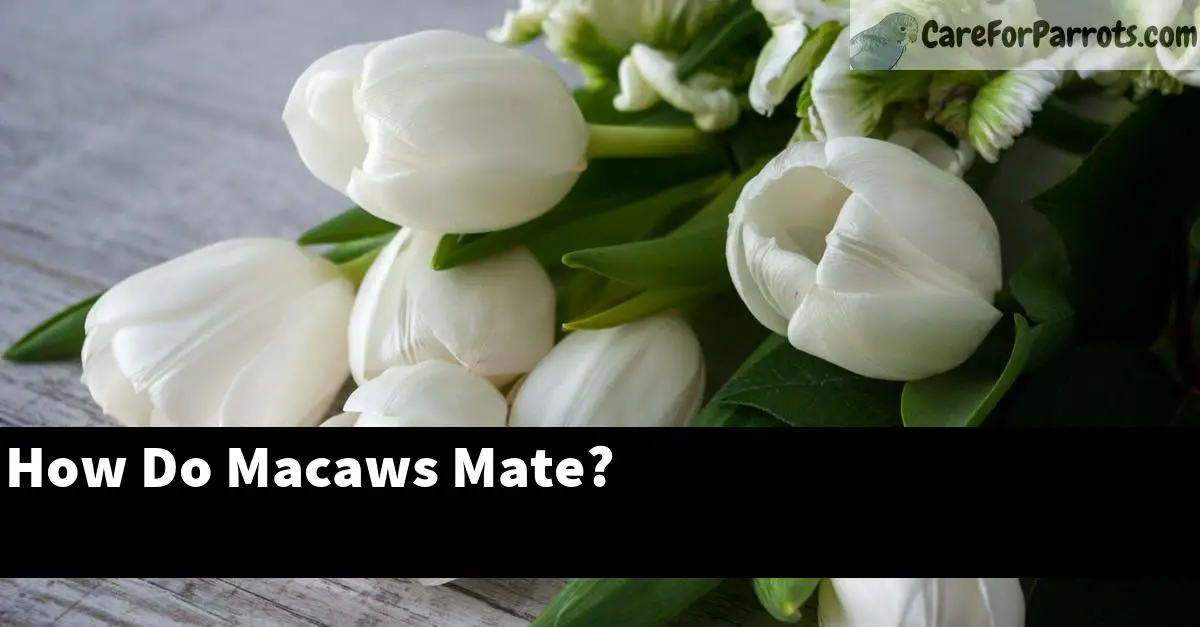Macaws are monogamous birds and mate for life. They typically build a nest of sticks on a high tree and lay one egg. The male incubates the egg and the female feeds the baby macaw.
Table of Contents
How does the mating process work for macaws?
The macaw mating process typically involves the male macaw feeding the female macaw a special type of fruit. After eating the fruit, the female macaw may subsequently approach the male macaw and display her sexual interest by preening and vocalizing.
The male macaw may then mount the female and copulate.
What role does the male macaw play in mating?
The male macaw plays an important role in mating. He will typically escort the female around the nest and show her how to build a nest.
He will also feed her and care for her while she is nesting.
How does the female macaw initiate mating?
In the macaw family, the female initiates mating by displaying her colorful plumage to attract the male. She will often sing or make other loud noises, and sometimes will preen or fan her feathers.
If the male is interested, he will approach her and they will mate.
What is the typical duration of a macaw mating session?
The typical duration of a macaw mating session is around 30 minutes. During this time, the macaw will be engaged in a series of vocalizations, courtship dances, and sexual activity.
How often do macaws mate?
The average lifespan of a macaw is around 50 years. They are monogamous birds and typically mate for life.
Mating typically occurs in the springtime and the birds will build a nest together. The male will do most of the work constructing the nest and the female will lay the eggs.
The chicks will fledge around six months after they are born and they will stay with their parents until they are ready to take on their own.
Do both parents care for the young after they are born?
There is no one-size-fits-all answer to this question, as the situation may vary depending on the individual case. In general, however, it is generally assumed that both parents care for their young after they are born.
One reason for this assumption is that both parents are typically responsible for providing food, shelter, and clothing for the young. Additionally, both parents are typically involved in the child’s care and development, providing guidance and support.
Whether or not both parents care for the young after they are born may also depend on the couple’s relationship. If the couple is not close, it may be more difficult for one or both parents to provide care for the young.
What is the average lifespan of a macaw?
The average lifespan of a macaw is around 50 to 60 years.
What factors can affect a macaw’s lifespan?
There are many factors that can affect a macaw’s lifespan. The most important factors are the bird’s overall health, its environment, and its care and feeding.
Other factors that can affect a macaw’s lifespan include genetics, age, sex, and injury.
Macaws are tropical birds and as a result, they are susceptible to a number of diseases and infections that can be fatal.
For example, macaws are prone to coronavirus (a virus that can cause severe respiratory illness in humans) and other diseases that can be fatal in other birds. In addition, macaws are also susceptible to predators, such as jaguars and eagles, and can be killed by them.
Macaws that are kept in captivity usually have a longer lifespan than those that are free-living. This is because free-living macaws are exposed to a variety of environmental stresses that can be harmful to their health and can shorten their lifespan.
For example, free-living macaws are likely to be bitten by predators, which can lead to infection and disease.
Macaws that are kept in captivity usually have access to a variety of foods and water, which is beneficial for their overall health.
In addition, they are usually kept in a clean environment, which is also beneficial for their health.
Summary
The macaw is a monogamous bird that mates for life. It typically builds a nest of sticks on a high tree and lays one egg.
The male incubates the egg and the female feeds the baby macaw.






